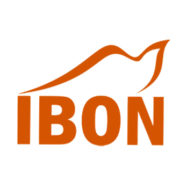A RECENT study conducted by the IBON Foundation concluded on Thursday, October 4, that the first package of the Tax Reform for Acceleration and Inclusion (TRAIN) law burdens the poorest 17.2 million Filipinos nationwide.
The said non-stock and non-profit organization found out that 76 percent or three out of four Filipino families are struggling to bear oil and other consumption taxes without the benefit of receiving compensatory personal income tax cuts
“The poor and middle class, even those few with gains from personal income tax cuts, will suffer cuts in their standard of living unlike the rich who will easily be able to maintain their lifestyles,” IBON Foundation said as reported by CNN Philippines.
This goes against the claim of the Department of Finance (DOF) stating that the tax reform is not “anti-poor.” The country’s finance department claimed that the top 10 percent of richest households consume as much fuel as the poorest 80 percent combined which is at about 51 percent.
The DOF added that based on the Family Income and Expenditure Survey (FIES) 2015, the top 1 percent uses oil equivalent to the bottom 50 percent of all households in the entire country.
IBON Foundation criticized the logic of the said argument, labeling it as “insensitive” to the actual income of a Filipino family.
The study reported that the poorest 80 percent has a monthly income ranging from P1,441 to around P29,600. As such, around 18.1 million families would belong to the country’s poor. While 2.1 million would belong to the lower middle class.
IBON reported that the “richest 10 percent” would include middle-class families earning between P44,000 and P100,000, which means they are part of the group which consumes 51 percent of the total fuel consumption.
The research group added the “TRAIN-driven” inflation affected the purchasing power of the poorest 90 percent of Filipinos by P1,622 to P9,250. The said foundation then suggested that taxation should be directed towards the country’s richest.
“Hundreds of billions of pesos can be raised by increasing taxes just on the richest 570,000 or 2.5 (percent) of super-rich Filipino families without burdening the poor. This will also entail lifting taxes on sensitive products such as oil, which will genuinely benefit the majority,” it explained.
In order to lessen the harm that TRAIN law is causing, several lawmakers have looked into the cancellation of some provisions in the tax reform program especially those on fuel and oil. However, President Rodrigo Duterte does not want to stop TRAIN as he does not believe that the tax reform law is responsible for the price surges.





